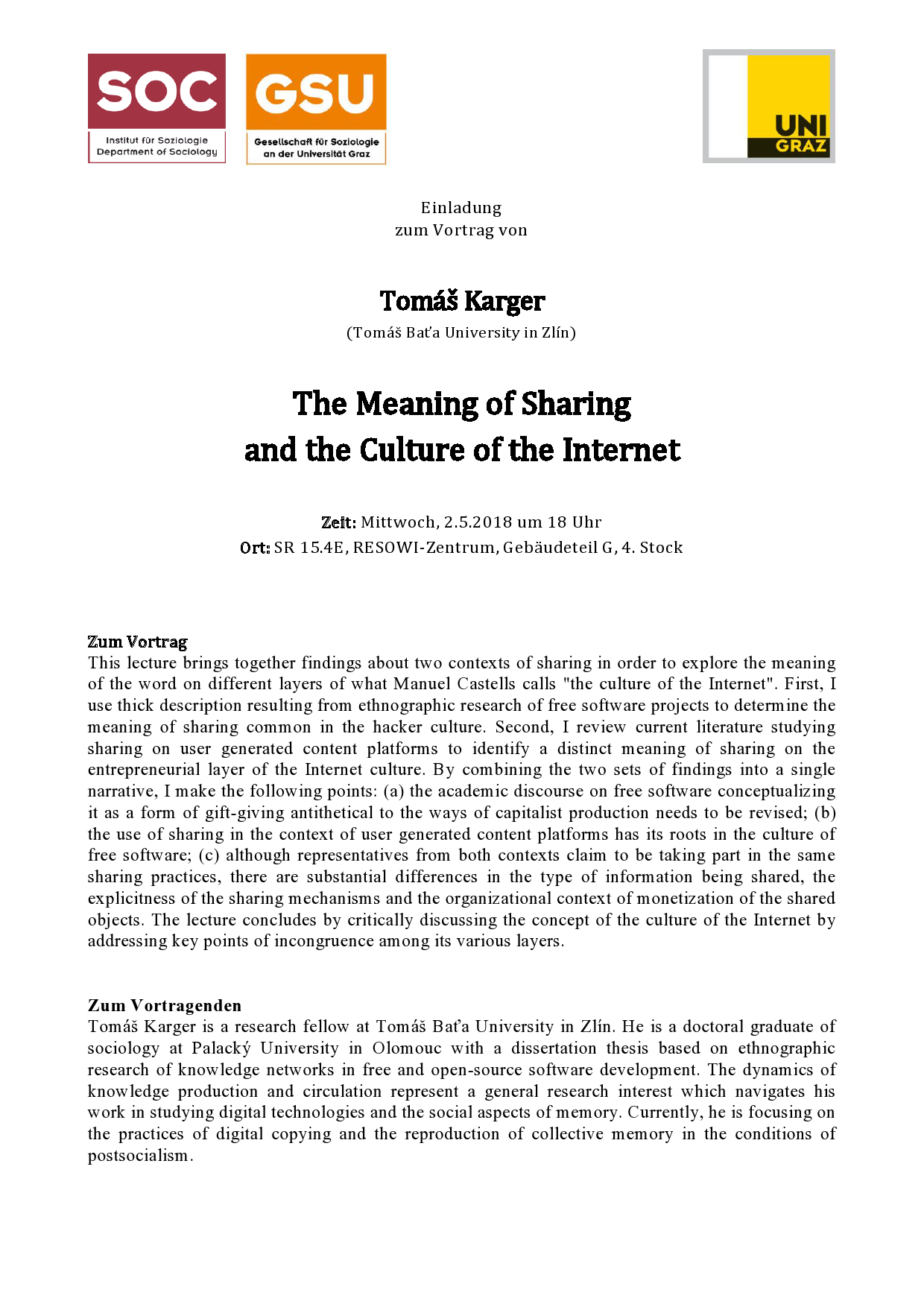This lecture brings together findings about two contexts of sharing in order to explore the meaning of the word on different layers of what Manuel Castells calls "the culture of the Internet". First, I use thick description resulting from ethnographic research of free software projects to determine the meaning of sharing common in the hacker culture. Second, I review current literature studying sharing on user generated content platforms to identify a distinct meaning of sharing on the entrepreneurial layer of the Internet culture. By combining the two sets of findings into a single narrative, I make the following points: (a) the academic discourse on free software conceptualizing it as a form of gift-giving antithetical to the ways of capitalist production needs to be revised; (b) the use of sharing in the context of user generated content platforms has its roots in the culture of free software; (c) although representatives from both contexts claim to be taking part in the same sharing practices, there are substantial differences in the type of information being shared, the explicitness of the sharing mechanisms and the organizational context of monetization of the shared objects. The lecture concludes by critically discussing the concept of the culture of the Internet by addressing key points of incongruence among its various layers.
Zum Vortragenden:
Tomáš Karger is a research fellow at Tomáš Baťa University in Zlín. He is a doctoral graduate of sociology at Palacký University in Olomouc with a dissertation thesis based on ethnographic research of knowledge networks in free and open-source software development. The dynamics of knowledge production and circulation represent a general research interest which navigates his work in studying digital technologies and the social aspects of memory. Currently, he is focusing on the practices of digital copying and the reproduction of collective memory in the conditions of postsocialism.
